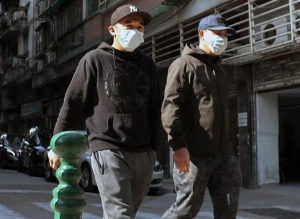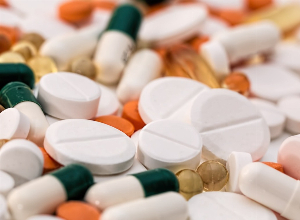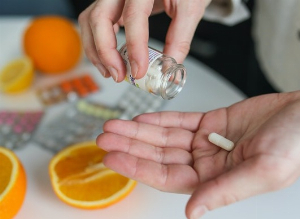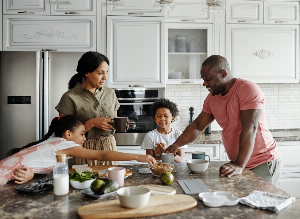All the questions you may have about COVID-19!
Published 23 Oct 2020 • Updated 26 Oct 2020 • By Candice Salomé
We conducted a survey on the Carenity platform from 24 September to 12 October 2020 in order to collect all the questions members might have about COVID-19. 96 members participated.
Through this article, we'll answer all your questions on the following themes: Who are the people most at risk due to their condition, but also due to their treatment? Who may be eligible for a mask exemption? Can one be immunised against COVID-19? How long do we have to stay in isolation if you have come in contact with someone who has tested positive for COVID-19? Can we ask our employers to work from home?
Discover the answers below!

COVID-19 and chronic illness: Who is at higher risk?
As the COVID-19 pandemic has progressed and understanding has evolved over the past few months, so too have the criteria for identifying people at risk of developing a serious form of infection.
There are currently two levels of higher risk: high risk (clinically extremely vulnerable) and moderate risk (clinically vulnerable)
What makes one at high or moderate risk?
You are considered high risk (clinically extremely vulnerable) if you find yourself in one of the following situations:
- You have had an organ transplant
- You are undergoing chemotherapy or antibody treatment for cancer, including immunotherapy
- You are having an intense course of radiotherapy (radical radiotherapy) for lung cancer
- You are having targeted cancer treatments that can affect the immune system (like protein kinase inhibitors or PARP inhibitors)
- You have blood or bone marrow cancer (such as leukaemia, lymphoma or myeloma)
- You have had a bone marrow or stem cell transplant in the past 6 months, or are still take immunosuppressant medicine
- You have been told by a doctor that you have a sever lung condition (such as cystic fibrosis, severe asthma or sever COPD)
- You have a condition that means you have a very high risk of getting infections (such as SCID or sickle cell)
- You are taking medicine that makes you much more likely to get infections (such as high doses of steroids or immunosuppressant medicine)
- You have a serious heart condition and are pregnant
You are considered at moderate risk (clinically vulnerable) if you find yourself in one of the following situations:
- You are 70 years or older
- You have a lung condition that's not severe (such as asthma, COPD, emphysema or bronchitis)
- You have heart disease (such as heart failure)
- You have diabetes
- You have chronic kidney disease
- You have liver disease (such as hepatitis)
- You have a condition affecting the brain or nerves (like Parkinson's disease, motor neurone disease, multiple sclerosis or cerebral palsy)
- You have a conditions that means you have a high risk of getting infections
- You are taking medicine that can affect the immune system (such as low doses of steroids)
- You are very obese (a BMI of 40 or above)
- You are pregnant
Find all our articles dedicated to COVID-19 and chronic illness:
- Coronavirus and Chronic Illness
- HIV and the Coronavirus
- Rheumatoid arthritis and the Coronavirus
- Multiple sclerosis and the Coronavirus
- Gastrointestinal disorders and the Coronavirus
- Diabetes and the Coronavirus
- Kidney disease and the Coronavirus
- Coronavirus and Obesity
- COPD and the Coronavirus
- Coronavirus and Hypertension
- Coronavirus and Cancer
Which treatments are the subject of guidance in relation to COVID-19?
Non-steroidal anti-inflammatory drugs:
At this time, the NHS finds that there is no strong evidence that NSAIDs (ibuprofen, naproxen, diclofenac, high-dose aspirin) can worsen coronavirus (COVID-19). However, until there is more information, it is advised to take paracetamol to treat any symptoms, unless otherwise indicated by your doctor. If you have been prescribed NSAIDS for your chronic condition, do not stop taking them without consulting your doctor by phone or tele-consultation first.
Immunosuppressive treatment, biotherapy or corticosteroids:
If you are affected by an autoimmune or auto-inflammatory disease and are under immunosuppressive treatment, biotherapy or corticotherapy:
- You should never stop or change your chronic treatment, whether immunosuppressive or not, without consulting your doctor first. This could lead to a worsening of your condition and complications specific to it. It will also not protect you against the coronavirus.
- For certain COVID-19 patients, it may be possible to temporarily stop corticosteroid/immunosuppressive/biologic medications to reduce the risk of serious complications, but only under medical supervision. Decisions should be made on a case-by-case basis with a doctor.
If you have cancer, Macmillan Cancer Support recommends:
- That you continue with your treatment and care plan as agreed with your healthcare team
- If you are undergoing post-cancer care, make sure to follow the general guidance and contact your doctor if you have any questions about your care
- If you are undergoing post-cancer supportive care, especially in a cancer centre, a temporary pause in your treatment may be recommended in active epidemic outbreaks
For more advice about specific cancers and their treatments, you can consult the Macmillan FAQ here.
Managing medical appointments by phone or online (telemedicine)
In recent months following the COVID-19 crisis, healthcare and the NHS has turned to remote consultations to minimise the risk of infection for both patients and medical staff. Now, GPs and other health professionals are encouraged to conduct non-urgent consultations remotely by telephone,video andonline consultations where possible.
Some of the NHS-approved tools include:
Some patients may feel like they should avoid getting help when they're feeling ill because they are worried about putting additional pressure on their GP or the NHS or are worried about catching the virus by going to their doctor's surgery or to hospital. However, your health needs remain as important as before and you should not hesitate to seek out the help you need.
If you feel ill, you can still see your GP, though he or she may prefer to do this over the phone or by online video chat rather than in person. Make sure to phone the surgery or visit their website for an appointment. You shouldn't go to the surgery in person unless advised to do so.
COVID-19 and work: Telework, staying safe, taking leave...
If you are clinically extremely vulnerable:
You should work from home is you can. If you cannot work from home, Government guidance says you can go back to work as long as your workplace is COVID-secure.
If you were previously shielding and working from home, your employer shouldn't force you to return to work.
If you're in an area where there's a local lockdown, you may get a letter from the NHS telling you to shield again. If you haven't received a letter and you think you should have, make sure to contact your GP.
If you have to self-isolate:
Current laws say that you must stay at home and self-isolate if:
- You or someone you live with tests positive for COVID-19
- The NHS tells you to self-isolate because someone you had contact with has coronavirus
If you have to self-isolate, it is against the law to leave your home to go to work. You must inform your employer that you have to self-isolate. If your employer knows you have to self-isolate but asks you to go to work anyway, tell them it’s against the law for them to ask you. The police can fine them for breaking the rules set in place.
Guidelines for staying safe at work:
If you are unable to work from home, your employer must set things in place to keep you safe from COVID-19. Measures could include:
- Letting you travel to work at less busy times of day
- Reducing your face-to-face contact with the public
- Ensuring that staff stay at least 2 metres apart in the workplace
You can consult the complete workplace guidance here.
If you're considered disabled under the Equality Act of 2010:
The definition of "disabled" in the Equality Act of 2010 covers a broad range of illness and conditions (physical and mental impairments that have a long-term effect on your daily life such as cancer, visual impairments, multiple sclerosis, HIV, chronic migraines, etc.) which may require your employer to make 'reasonable adjustments' to help you work. This may include allowing you to work from home or giving you a different job to do. You can check if you're considered disabled under the Equality Act here and how you can ask your employer to make reasonable adjustments here.
You may also be able to get support from Access to Work to help you work from home, at your usual workplace, or a combination of both. If you cannot use public transport safely because of your condition, you may also be able to get funding for extra travel costs. You can find more information about Access to work here.
If you think your workplace isn't safe:
Make sure to communicate with your employer and let them know that you feel unsafe so they can put things in place to ensure your safety.
If you do not want to work:
If you are not already furloughed, you can ask your employer if they will furlough you. You will be paid 80% of your normal pay up to £2,500 a month. Your employer will only be able to furlough you if:
- You were already furloughed for at least 3 weeks before 1 July 2020 OR
- You are returning from maternity or paternity leave, adoption leave, shared parental leave or parental bereavement leave
If you are returning from one of the types of leave previously mentioned, your employer must also have used the scheme to furlough other employees before 1 July 2020. If you are currently furloughed, you should ask your employer to keep you on the scheme.
You should inform your employer if you have a condition that makes you at high or moderate risk as this may encourage them to agree to your furlough or to extend your furlough. If you can, ask your GP for evidence of your condition.
If your employer can't or won't furlough you:
You can:
- Use some of your annual leave to take paid time off
- Ask your employer to pay some of your wages in advance
- If you have children, ask your employer if you can take unpaid parental leave
- If you are considered at high risk, you should be entitled to statutory sick pay (SSP)
If your employer won't help you with your concerns:
You should contact your local Citizens Advice, who may be able to help you negotiate with your employer.
Testing for COVID-19: What kind of tests are there? Who should be tested? Where can I get tested?
Since 18 May 2020, lab-based tests are available to anyone in the UK exhibiting coronavirus symptoms, or for those who do not have symptoms and have been asked to take a test.
We recently published an article detailing the latest information on types of tests and testing locations across the UK: How to get tested for the coronavirus (COVID-19)?
Self-isolation, quarantine? What to do after being tested for COVID-19?
If the result is positive:
A positive result means you had coronavirus when the test was done. If your test is positive, you must self-isolate immediately.
- If you had the test done because you had COVID symptoms, you must stay in self-isolation for at least 10 days from when your symptoms started
- If you had a test but haven't had symptoms, you should self-isolate for 10 days from the date of the test.
In England, you will be contacted by the NHS Test and Trace service and asked where you've been and with whom you've been in contact in recent days. It is important to trace close recent contacts to inform those who may be at risk and to control the rate of reproduction (R), reduce the spread of the infection and save lives.
If the result is negative:
A negative result means the test did not find coronavirus. You do not need to self-isolate as long as:
- Everyone you live with who has symptoms tests negative,
- Everyone in your support bubble who has symptoms tests negative,
- You haven't been told by the NHS Test and Trace service to self-isolate for 14 days
- You feel in good health - if you feel ill, stay home until you feel better
If the result is unclear, void, borderline or inconclusive:
An unclear, void, borderline or inconclusive results means that it's impossible to say if you had coronavirus at the time of the test. In this case, you should get another test done as soon as possible.
If you had the test done because you were exhibiting symptoms, you should continue self-isolating and get another test within 5 days of the first signs of symptoms.
If you've been contacted by NHS Test and Trace because you've been in contact with someone who has COVID-19
If you've been in contact with someone who has coronavirus, you should stay at home in self-isolation for 14 days and strictly follow the barrier gestures. You can find and read the NHS guidance for this situation in more detail here.
Wearing masks: Can I get an exemption? What happens if I don't wear one? How to keep my glasses from fogging up? How to avoid skin issues?
Are there any exceptions to wearing a mask? Can I get an exemption card?
In settings where masks are required in England, the following exceptions are allowed:
- Children under the age of 11
- People who cannot put on, wear or remove a face covering on their own (due to a physical or mental illness or impairment, or disability)
- Employees of indoor settings or transport workers
- Police officers and other emergency workers
- In the case that putting on, wearing or removing a mask will cause you severe distress
- If you are speaking to or assisting someone who relies on lip reading, clear sound or facial expressions to communicate
- To avoid harm or injury, or the risk of harm or injury, to yourself or others
Note: These exceptions may vary across the UK, make sure to check with your local authority.
If you have an age-, health- or disability-related reason to not wear a mask, you are allowed to do so without having to provide written evidence of your condition. You are not required to seek advice or request a letter or certificate from a medical professional justifying your not wearing a mask.
Some people may feel more at ease with a card or badge indicating that they are exempt from wearing a mask. You can access premade, printable exemption card templates here.
What happens if I don't wear a mask?
Failure to wear a mask without a valid exemption or reasonable excuse may result in a fine. For a detailed overview of the possible fines, consult our recent article on masks: Coronavirus (COVID-19) masks: Legislation, types, prices and more!
How to keep my glasses from fogging up with a mask?
While masks are already a challenge within themselves due to their hot or uncomfortable nature, those of us who wear glasses may have an additional hurdle in getting used to them: fogged lenses.
Glasses tend to fog up when you wear a mask due to a simple scientific explanation: when warm air (like your breath) hits a cold surface (such as your lenses), condensation can form. Here are a few tips to help prevent this from occurring:
- Use your glassesto seal your mask closed: By wearing your mask higher up on your nose, you can place your glasses over the top of the mask to seal the mask closed and keep the warm air from exiting.
- Make sure to choose a well-fitting mask: A mask with a nose-bridge may help to keep the warm air escaping from the top of your mask and fogging up your lenses. You can purchase masks that have a nose bridge or that can be moulded to the face. If you've chosen to make one yourself, you can sew a pipe cleaner or twist tie into the top so it can be shaped to fit the nose.
- Rinse your lenses in soap and water: Simply wash your lenses with soapy water and let them air dry or wipe them with a dry cloth. The soap will leave behind a thin film that will act as a barrier against condensation. Some glasses may have a special coating on them, so make sure to check with your optician before trying!
- Use an anti-mist wipe or spray: Some chemists or opticians may sell specials sprays or wipes for exactly this purpose. Before trying, make sure to check the ingredients so that it won't damage the coatings on your lenses or hurt your eyes.
How to avoid skin issues caused by wearing a mask?
“Facial skin is not physiologically adapted for wearing a mask. It is thin and reacts more quickly to abrasion”, explains dermatologist Dr. Radostina Bachvarova. She continues: "The friction of the mask on the fragile areas of the face, especially on the top of the nose where some masks equipped with a steel bar rest. This irritates the skin and damages the natural cutaneous barrier. When this skin barrier is damaged, skin problems occur."
The most common skin issues that can occur are:
- Eczema: also called atopic dermatitis, this is an inflammation of the skin that can result from pruritus in the areas where the mask sits, i.e. itching and associated redness.
- Psoriasis of the face: repeated friction from the mask can irritate the skin, plaques psoriasis may appear.
- Acne and rosacea: acne and redness on the skin appear as a result of repeated friction from the mask on the skin and are aggravated by heat and perspiration.
Here are a few tips to help you cope with wearing a mask:
- Refresh your face regularly (with a thermal water spray),
- Drink plenty of water
- For men, shave your beard
- Apply less make-up
- Choose anti-irritating moisturising creams, to be applied morning and evening.
- Cleanse your skins with a neutral pH or slightly acidic product to restore the balance of the skin's microbiota
- Avoid neoprene masks, especially for those with latex allergies, synthetic materials or masks that are very colourful and contain irritating dyes or substances. Instead, choose a surgical mask or a fabric mask made of cotton and in a neutral, pale colour.
Can breathing difficulties be avoided when wearing a mask?
People with asthma, COPD, cystic fibrosis, pulmonary fibrosis or bronchitis should pay attention to their choice of mask. "A mask that is too airtight, like respirator masks, will be difficult to wear for a prolonged period of time" says allergist Dr. Sophie Silcret-Grieu.
For people who suffer from respiratory problems, it is therefore advisable to be cautious when choosing a mask, "preferably a surgical type, but the best thing is to try several models and to opt for the one that suits you best," recommends the doctor.
Do you become immune after having COVID-19?
It is now a certainty: you can catch COVID-19 twice, and even be sicker the second time. These cases of re-infection are still very rare but raise many questions about the duration of immunity and the course of the pandemic.
According to medical journal The Lancet Infectious Diseases, five cases have been confirmed worldwide so far: in Hong Kong (this was the first, announced on 24 August), Belgium, the Netherlands, Ecuador and in the US state of Nevada.
In patients in Nevada and Ecuador, the second infection was more severe than the first, while this was not the case in the other three. For scientists, the fact that the Hong Kong patient did not develop symptoms the second time is a sign that his immune system learned to defend itself after the first infection - his second COVID-19 infection had been discovered by chance, thanks to a screening test at the airport when he was returning from Europe.
People who have tested positive for COVID-19 should therefore continue to take all possible precautions, including social distancing, wearing a mask and washing their hands, as re-infection is possible.
Thank you for participating in this important survey, which has allowed us to answer questions you may have had. We are committed to relaying the most relevant information to you and through this survey, we were able to do so.
Please don't hesitate to let us know if other surveys of this type might be of interest to you in the comments below!
Was this article helpful to you?
Share your thoughts and questions with the community in the comments below!
Take care!
Sources:
https://www.macmillan.org.uk/coronavirus/cancer-treatment-and-coronavirus
https://www.gov.uk/guidance/working-safely-during-coronavirus-covid-19
https://www.citizensadvice.org.uk/work/coronavirus-if-youre-worried-about-working/
https://health.clevelandclinic.org/how-to-keep-your-glasses-fog-free-while-wearing-a-mask/
https://www.thelancet.com/journals/laninf/article/PIIS1473-3099(20)30764-7/fulltext

 Facebook
Facebook Twitter
Twitter


